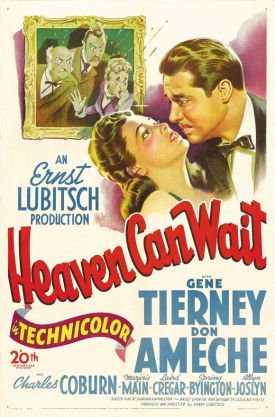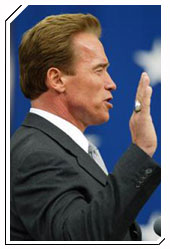Not the Same as Shame
From The New CriterionThomas Merton, later in life
I used to run in the woods, and climb the mountains. I went up the Plomb du Cantal, which is nothing more than a huge hill, with a boy who was, I think, the Privats’ nephew. He went to a Catholic school taught, I suppose, by priests. It had not occurred to me that every boy did not talk like the brats I knew at the Lycée. Without thinking, I let out some sort of a remark of the kind you heard all day long at Montauban, and he was offended and asked where I had picked up that kind of talk. And yet, while being ashamed of myself, I was impressed by the charitableness of his reaction. He dismissed it at once, and seemed to have forgotten all about it, and left me with the impression that he excused me on the grounds that I was English and had used the expression without quite knowing what it meant.
This account in Thomas Merton’s Seven Storey Mountain of his own life, aetatis sui eleven, during a summer spent in 1926 with the saintly Privat family of Murat in the Auvergne, makes me wonder if there is anywhere in America, anywhere in the world, where a boy could have a similar experience today: the experience, that is, of being ashamed of himself for using foul language in the presence of a coeval — let alone of feeling grateful for the charity of the one who had made him feel ashamed. Today, it seems, the only thing most kids are allowed to feel ashamed of is shame itself. It could damage their self-esteem.
If there be such a place, might it not be at the Catholic Boys School of Covington, Kentucky, just about a hundred miles from the Trappist Abbey of Gethsemani where Merton spent most of his adult life and where he is buried? Apparently not. Covington Catholic isn’t into shame anymore either, except for an entirely secular version of it more appropriately described as cultural cringe. For no sooner had CNN put an out-of-context video clip on cable news meant to suggest that boys from the school had been guilty of something that might, in a dim light, be interpreted as racism than the school authorities, who had no more knowledge of the affair than what had appeared on CNN, practically fell over themselves in their haste to issue groveling apologies and promises of discipline to the presumably guilty boys.
The boys had gone to Washington, D.C., for the annual March for Life on January 18, a few days before the anniversary of the Supreme Court’s Roe v. Wade decision in 1973. While they were there, some had acquired as souvenirs baseball caps bearing the letters MAGA — standing, as all the world now knows, for Make America Great Again — a slogan which, although not original with him, is associated with President Donald Trump. Obviously, having advertised themselves as white, Catholic, pro-life and pro-Trump, these boys were asking for trouble, though as they were not yet out of their teens and had little or no experience of a center of media and political sophistication like Washington, D.C., they didn’t know it.
Thus, when an aged but very dignified looking American Indian pointlessly banging on a drum wandered into their midst just at the moment when they were engaging in a school cheer in response to some vile slurs being tossed their way by a group of demonstrators off camera, it was the work of a moment for some amateur propagandist to record the encounter and then edit the footage so as to make it look as if it was the boys who were accosting the Indian rather than the other way round. This falsehood was then seconded by the Indian himself, who turned out to have a long history of prevarication, including the suggestio falsi that he was a Vietnam veteran, and who now claimed to have been the victim of racial abuse on the part of the boys.
 |
In less than a day, unedited footage of the event demonstrated that nothing of the sort had happened. Some who had seen and commented with asperity on the original, “viral” video apologized, but many merely shifted their ground, claiming that what they described as a “smirk” on the face of 17-year-old Nick Sandmann, the boy who stood nearest to the Indian, must betoken the very racism as originally reported with all the awesome authority of CNN — doubtless because criticizing CNN would be scarcely less unthinkable to them than wearing a MAGA cap themselves. This might have been Fake News of the very fakest but neither it nor the outpouring that it provoked of hate-filled tweets against these innocent children — who were protesting on behalf of other innocent children — could elicit anything that looked much like shame from the media. The word is often in their mouths to describe the behavior of others, especially that of Donald Trump, but never their own.
Over at National Review, where some conservatives had briefly joined the tar-and-feathers brigade on the first reports and were ashamed of it, Deroy Murdock wrote a piece about this and other media malfeasances headed: “Anti-Trumpers Only Embarrass Themselves.” Do they? I very much doubt it. In the same way, I listen every Monday morning to a local radio station where Joe DiGenova, whom I like and admire (as I do Deroy Murdock), has a regular gig. Week after week he talks of the latest revelation of outrageously partisan and unprofessional behavior by the likes of James Comey or Rod Rosenstein or Christopher Wray or Robert Mueller as “an embarrassment.” I think he would be understood to mean that, as a former federal prosecutor himself, he is embarrassed by such behavior on the part of those he would once have considered professional colleagues. But of course the secondary meaning is that these men themselves are or ought to be embarrassed to have all the world know with what impropriety or blatant partiality they have gone about their duties as federal investigators.
And yet they’re not. There’s no getting around it. Surely, if there is anything in our public life today that is as certain as the sun’s coming up tomorrow it is that the “anti-Trumpers” — the most virulent of them at any rate — are quite incapable of embarrassment, which is a more polite word for shame. And that should tell you all you need to know about how such incidents of fake news happen in the first place — because they know that no shame will accrue to them even if they are exposed. Moreover, to be incapable of embarrassment you have to be incapable of seeing anything in yourself to be embarrassed about. Not only are the unembarrassable never embarrassed, they continue to behave in what ought to be embarrassing ways just as if Joe DiGenova and others who profess embarrassment on their behalf didn’t exist.
As indeed they don’t, at least in the eyes of the only audience they care about, which are those of the big media and their Democratic and anti-Trump hangers-on. You might begin to wonder if there could be any connection between rabid anti-Trumpery and an incapacity for embarrassment, and I think there just might be one. For shame depends on our ability to see ourselves as others see us when they think we have done something contemptible, just as Thomas Merton did in the Auvergne as an even younger boy than the Covington lads nearly a century ago. “You ought to be ashamed,” I seem to remember my own mother’s once (or twice) saying to me. And I even think I was ashamed to hear her say so, though I can no longer remember what I was (or ought to have been) ashamed about.
It was obviously a long time ago. So long ago, in fact, that I must have taken it for granted that I inhabited the same moral universe as my mother, a universe full of solid moral realities that existed and had to be recognized whether I liked them or not. And mostly, of course, I didn’t like them. But now, all these years later, even children get to live in Hamlet’s world of imagination where “there is nothing either good or bad, but thinking makes it so.” For Hamlet it was just that which was the trouble, since he could never square that world of imagination with the world of unpleasant realities that he couldn’t bring himself entirely to wish away.
Today we have it a lot easier. If ever we do or say anything that appears contemptible in the eyes of others, all we have to do is turn the contempt back on them: they are the contemptible ones; they should be ashamed — because we all inhabit a private moral universe of our own in which we and those of like minds with ourselves can do no wrong, by definition. That’s also why, when an academic hoaxer in Oregon exposed the woefully lax scholarly standards of various supposedly “peer-reviewed” journals of what are increasingly falsely described as the “social sciences” none of the periodicals in question, specializing in “grievance studies,” felt any shame at their exposure, only anger against their exposer, one Peter Boghossian, assistant professor of philosophy at Portland State University — which institution sought to punish him as a result.
Charlotte Allen, writing in The Wall Street Journal, calls this “a surprising twist” to the story, but I submit that it is not surprising at all. What would be surprising would be a university (or anybody else) who sincerely admitted fault for anything — or anything but inadvertently giving offense to some protected minority in order to ward off being given the Covington boys’ treatment.
If you notice a certain irony in Mr Boghossian’s being punished by the scientific establishment for exposing bad science, it’s only because you haven’t yet grasped that “science” itself no longer means what it once did. For scientists have joined the media among the ever-growing ranks of the unembarrassables — an irony in itself as the capacity for embarrassment through admitting to yourself that you are wrong is the foundation of science. Now, and particularly in the mouths of politicians, “science” most often means instead and oxymoronically the utter, unembarrassable self-assurance which is seen as the privilege of an elite not subject to question or criticism.
But irony, like shame, is not possible in a world where you can no longer see yourself through the eyes of others. So wrapped up in ourselves and in our self-certainties we have no means of understanding contrary points of view except as perversity at best and evil at worst. Only thus do you get the kind of Twitter-twits who write of the Covington boys: “LOCK THE KIDS IN THE SCHOOL AND BURN THAT BITCH TO THE GROUND” or “MAGA kids go screaming, hats first, into the wood chipper” — two of Mr Murdock’s more egregious examples.
If the authors of such witticisms didn’t feel embarrassed by them before they knew the boys were innocent, why should they feel embarrassed afterwards — or ever? Shame for them, as for the media, is only for other people to feel, since they are no more capable of it than they are of doing anything to be ashamed of. Is it too much of a stretch, then, to see the children these children were protesting to save, the children thrown into the wood-chipper of abortion for real, as victims of the same self-imprisonment that Hamlet both desired and feared? I don’t think so. In my home state of Virginia, the progs are pushing to have abortion legalized throughout the birth process itself, up to or even beyond the point at which the child is born alive. Similar legislation in New York has actually been passed — and applauded on passage — by the legislature.
The pro-abortion lobby has insisted so loudly and for so long that those whom they would “terminate” are not human in the same sense that they themselves are human that it should not be surprising if the universe of non-human humanity should by now have expanded to include even those, like Nick Sandmann, who are 213 months or so along from conception. Can it be long before it includes all those of us who, seeing humanity in the axiomatically non-human, must therefore be non-human ourselves?
Like Ms Allen, who wrote about the Covington Catholic affair for First Things, I was most dismayed by the behavior of some grown-ups who ought to have been the first to leap to the boys’ defense. No less an eminence than the Bishop of Lexington professed agnosticism about what “really” happened in Washington but condemned the boys anyway for, in his view, associating themselves “with racist acts and a politics of hate” — that is, for advertising their support of the most prominent pro-lifer in politics today. “It’s the pathetic spectacle,” wrote Ms Allen,
of Catholic institutions and Catholic public intellectuals wringing their hands and rushing to condemn the boys minutes after the original video went viral . . .[and] to apologize for something that never happened, assuring liberal critics that they, too, considered the youths —their own students, parishioners, and co-religionists — to be deserving of grievous sanctions. R. R. Reno has pointed out that today’s Catholic leaders are “overwrought with anxiety about their roles in elite society.” That’s true, but I think there’s something more: a deep and pervasive crisis of confidence among educated Catholics in their own institutions.
I myself think the tectonic plates of secularism go even deeper and have shifted much more profoundly since little Thomas Merton learned without being taught to be ashamed of using bad language in the presence of a religious believer — and so, perhaps, after many years, came to be a believer himself. The shame of the bishop and of the Covington school authorities, at least some of which we must suppose they have managed to convey to the pupils themselves, is of a piece with that of the president of Notre Dame University who recently announced without any visible signs of shame that he had ordered some murals of Christopher Columbus covered up out of deference to liberal sensitivities — by which, presumably, he meant to forestall any charges against himself or his institution as apologists for genocide.
This, it is true, is a kind of shame, but it is an inverted shame: a shame not for something the church or the school or the university have done wrong but for their ostensible mission to do right, merely because that mission doesn’t pass muster with the progressive media. The position of cultural dominance tacitly enjoyed by the Catholic schoolboy living his faith in Merton’s anecdote — and, beyond him, by a religion largely based on self-examination and self-criticism — is now occupied by the secular, religion-averse media who exercise the power of the official culture in all ages to make those who differ from its principles and standards feel ashamed of their own. Leading Democrats who once described themselves as moderates now feel the same shame, which is how the party has moved so far to the left. It would appear that the decades-long media attempt to make progressivism synonymous with decency in the eyes of ordinary decent folk has all but succeeded.
Discover more from James Bowman
Subscribe to get the latest posts to your email.







